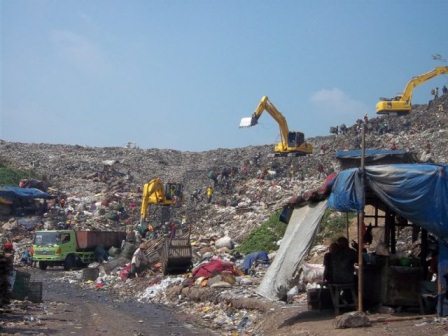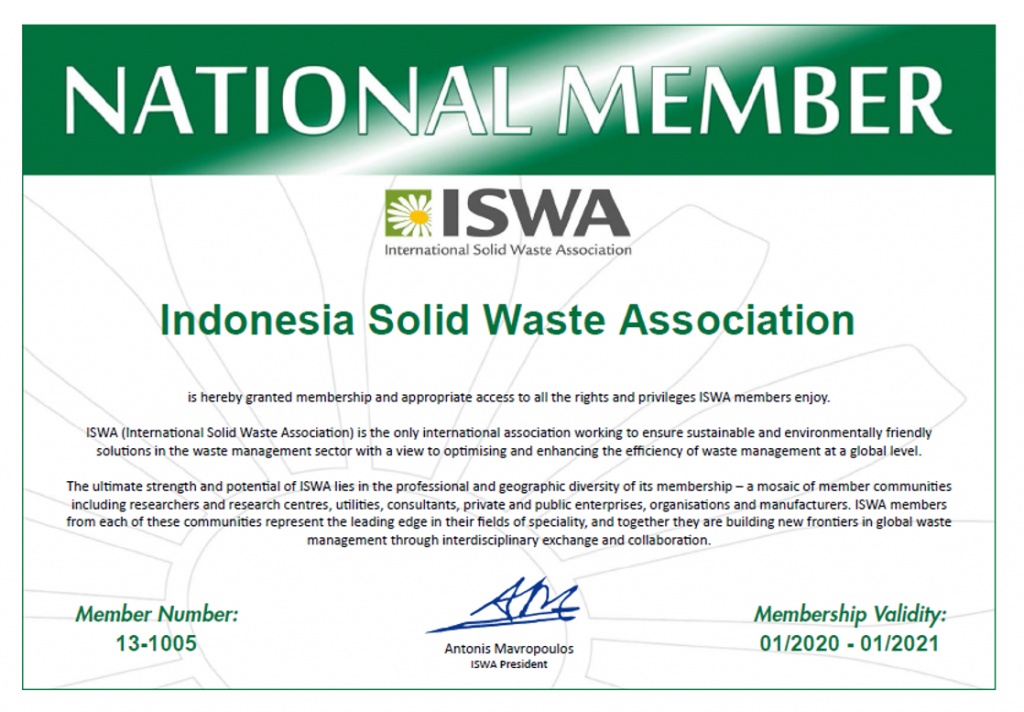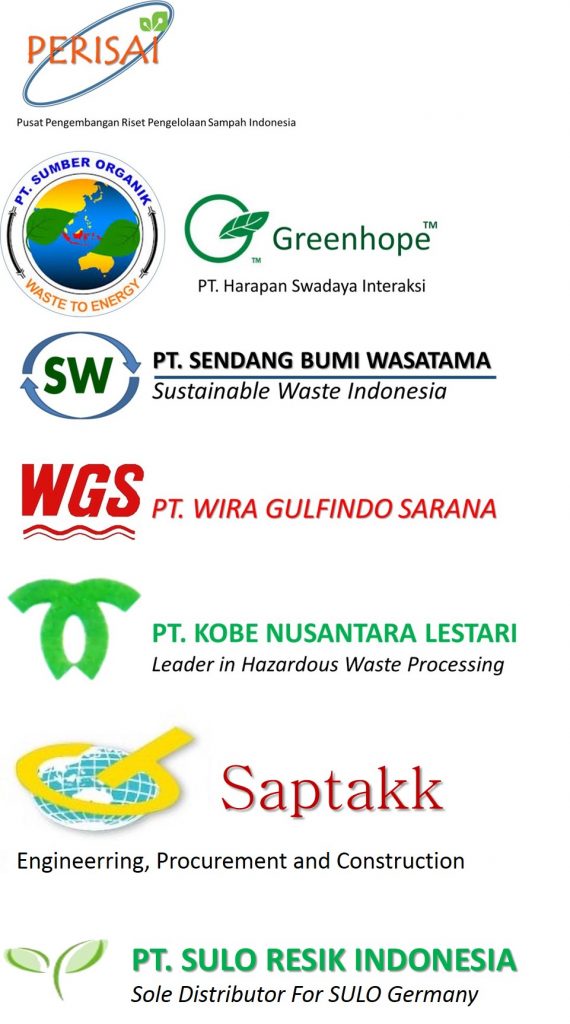Drowning in Waste
Elise Dalley, The Jakarta Post, Jakarta | Sun, 02/13/2011 10:15 AM
 As Jakarta’s population grows, experts warn that continued development, coupled with the city’s poor waste management system, may make it drown in its own waste, shooing away foreign investment crucial for future growth.
As Jakarta’s population grows, experts warn that continued development, coupled with the city’s poor waste management system, may make it drown in its own waste, shooing away foreign investment crucial for future growth.
While international waste management standards demand a minimum spend per ton to adequately manage rubbish in a major city, the government currently spends only some 50 percent of this in Jakarta and less than half of that in smaller, outlying regions.
Chairman of the Indonesian Solid Waste Association, Sri Bebassari, said the government must prioritize investment in waste management and recycling procedures not only for the health and safety of local residents, but also to maintain the appeal Indonesia currently has in the eye of foreign investors, invaluable for their role in boosting the country’s economic growth.
“It is a priority for Indonesia to adopt a national standard, in line with international standards, because at the moment, we are operating at a very low level.
“If you compare with other international cities, the operation costs for final disposal are around US$20 to $25 per ton. Here in Indonesia, it is maybe only $3 to $5 outside of Jakarta and $10 in the capital, because it is just not a priority yet in the political will,” she said.
At present, the majority of waste from Jakarta’s inner city is transported to the rubbish dump at Bekasi. Less than 7 percent of recyclable material is actually recycled in Jakarta, according to Bebassari, who said although pressure from Bekasi residents has pushed the government in Jakarta to start investing in better methods for waste disposal, there is still a long way to go.
The Jakarta Public Works Department have found that the inner city population of roughly 9 million people is capable of producing around 6,250 tons of waste per day, with only 1,200 waste drop off stations — that is, one station for waste disposal per 7,500 residents.
As a result, Bekasi — only 30 kilometers from the central business district — is home to mountains of rubbish the local community describe as unbearable. These growing piles of rotting rubbish cause not only a great stench, but also pose serious health and safety issues for surrounding residents.
A World Bank pilot project focused around Jakarta and West Java last year, aimed at improving waste collection and disposal, as well as supporting activities directed at waste reduction, reuse and recycling, found plastic accounts for almost 14 percent of waste in Jakarta and confirmed Bebassari’s claim that as little as 6.5 percent of the total city waste is recycled, mostly by the informal sector and not through government initiatives.
The World Bank’s financial sector, the International Finance Corporation (IFC), maintains a strong presence in both Indonesia and East Asia to promote a sustained commitment to infrastructure upgrades and the creation of a healthy environment for both the investors and the half a billion people who still live on less than $2 a day.
Indonesia country manager for the IFC, Adam Sack, said as home to China and Indonesia — two of the World’s top three countries for greenhouse gases — the East Asia region in desperate need of renewed infrastructure to cope with expanding demand.
With a number of strategic objectives in place to support development – specifically to reduce the impact of climate chance and promote sustainable urbanization – Sack agreed there is a need for development of waste management and recycling strategies to ensure Indonesia’s economy continues to move in the right direction.
“Greater infrastructure development in Indonesia will increase efficiencies for businesses and attract more investment, thus creating more jobs and stimulating growth,” he said.
Listed as a Next 11 country by Goldman Sachs in 2007, although Indonesia is earmarked as a country that could overtake the bulk of the G7 countries by 2050, the global investment firm predicts growth stories in the country could be much more compelling if conditions here were improved.
A further review by Goldman Sachs in 2008 of infrastructure and demand in the Next 11 group of countries found that Indonesia, alongside Russia, India and Vietnam, will dominate infrastructure demand outside of China in the coming decade.
Researchers Sandra Lawson and Raluca Dragusanu said in order for capital development to continue and Indonesia to reach its potential to transform into one of the largest and most important economies in the world, governments will need to lead a shift in the public perception of infrastructure as free or nearly free public goods and waste systems will need to come under review.
Although the study made predictions that Indonesia will spend $88 billion on infrastructure in the decade to 2018, the majority of this will be spent on electricity, roads, mobile phone networks and Internet, with no mention of waste as a national priority.
When asked how long it will take until Indonesia will see a proper system of waste management and recycling, Bebassari was hesitant: “How long is difficult to answer, because if we speak in terms of solid waste management, there is not only the investment in technology we have to look at, but the entire approach that must be fixed.”
“I hope in maybe five or 10 years we could see something happen, but it is so much about development of people’s culture, so it takes time,” she said, citing five elements of Indonesia’s current waste management that must be addressed in order to bring the country in line with international standards.
Even if the government were to implement the five aspects central to success — regulation and law, cost, social, cultural and technological — immediately, coercion and education takes time.
“Jakarta may not see any significant improvement in waste management for up to a decade,” Bebassari warned.
In order to kick start the education process, the Indonesia Solid Waste Management Association, under the chair of Bebassari, launched a research center for solid waste management in 2008 and are currently working on a program that aims to improve the green level certification for degradable plastics bags used around the country.
A waste researcher since 1980 and the self confessed “queen of waste”, said her biggest dream was for Jakarta to maintain a National Law of solid waste management that places the city in line with other international capitals.
“Not many people know about the importance of solid waste management, but 100 percent of people produce the waste. Not many people know solid waste management is costly, but it is worth it for the city in the long term. We’ll have to pay for our pollution one day,” she said.
The writer is an intern at The Jakarta Post.
Closer Look
The Bureau of International Recycling, responsible for promoting free and fair trade of recyclables in a sustainable and competitive world economy, has found that even the most basic plastic bottle recycling can have numerous impacts on the surrounding community.
Statistics:
Recycling a single plastic bottle can conserve enough energy to light a 60-watt bulb for up to six hours.
Recycling five PET plastic bottles produces enough fiber for one T-shirt.
There is an 80 to 90 percent reduction in energy consumption by producing recycled plastic compared to producing plastic from virgin materials (oil and gas).




